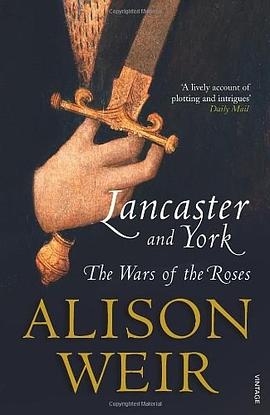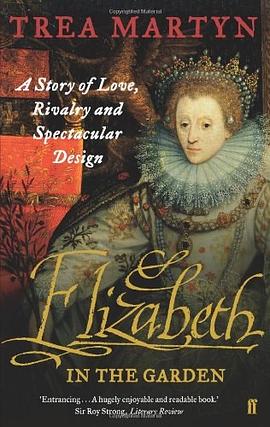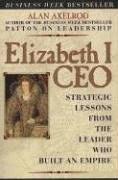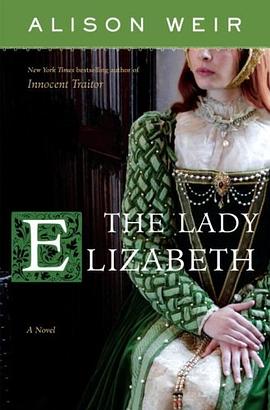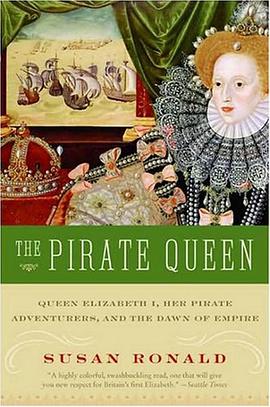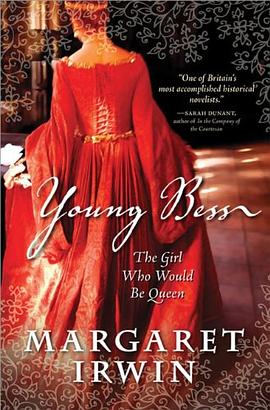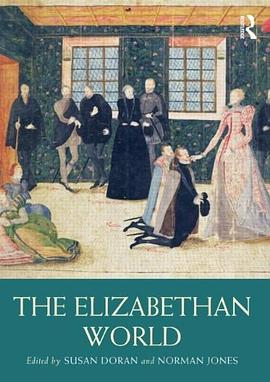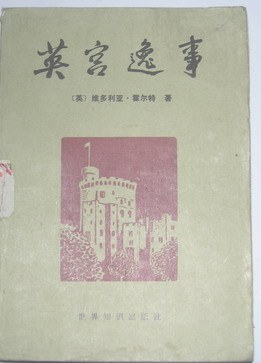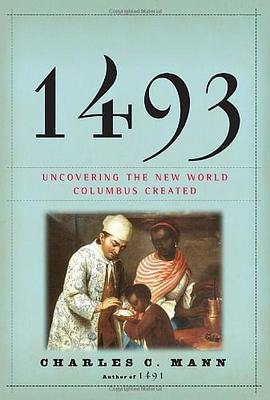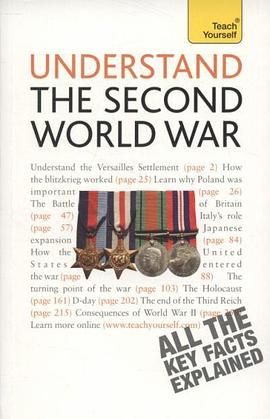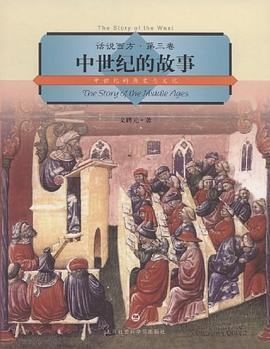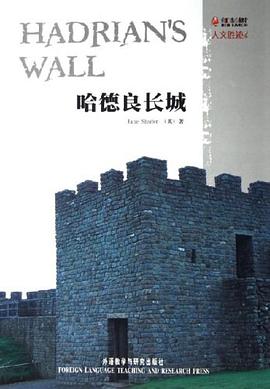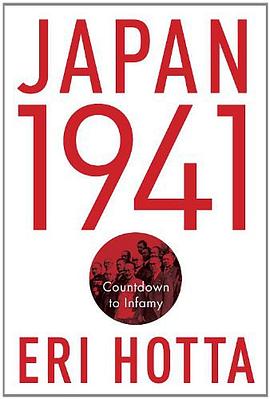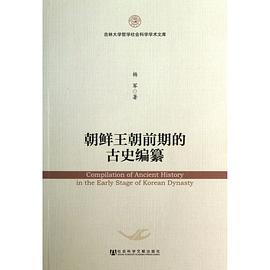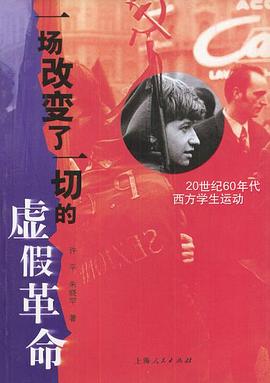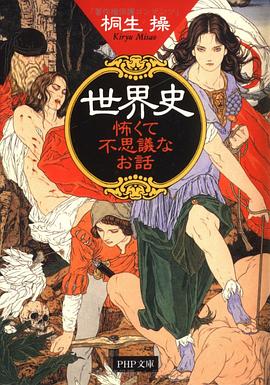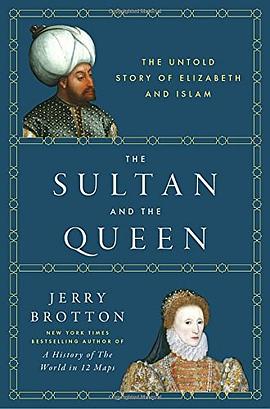

具体描述
Long before Thomas Jefferson confronted the Barbary Pirates, Queen Elizabeth sent a secret message to the Ottoman Sultan Murad II, inviting him to open his markets to her merchants and to embark on a pathbreaking new alliance. Islam and the West crossed paths much earlier than we think—and originally the Muslims had the upper hand.
When Elizabeth was excommunicated by the pope in 1570, she found herself in an awkward predicament. England had always depended on trade. Now its key markets were suddenly closed to her Protestant merchants, while the staunchly Catholic king of Spain vowed to take her throne. In a bold decision with far-reaching consequences, she set her sights on the East. She sent an emissary to the shah of Iran, wooed the king of Morocco, and entered into an unprecedented alliance with the powerful Ottoman Sultan Murad III.
This marked the beginning of an extraordinary alignment with Muslim powers and of economic and political exchanges with the Islamic world of a depth not again experienced until the modern age. By the late 1580s, thousands of English merchants, diplomats, sailors, and privateers were plying their trade from Morocco to Persia. To finance these expeditions, they created the first ever joint stock company, a revolutionary new business model that balanced risk and reward.
Londoners were gripped with a passion for the Orient. Elizabeth became hooked on sugar as new words like candy, turquoise, and tulip entered the English language. Marlowe offered up Tamburlaine and Shakespeare wrote Othello six months after the first Moroccan ambassador’s visit. Jerry Brotton reveals that Elizabethan England’s relationship with the Muslim world was far more amicable—and far more extensive—than we have ever appreciated as he tells the riveting story of the traders and adventurers who first went East to seek their fortunes.
作者简介
Jerry Brotton is a professor of Renaissance studies at Queen Mary University of London. He is a renowned broadcaster and critic, and author of Global Interests: Renaissance Art Between East and West (with Lisa Jardine), The Renaissance Bazaar, The Sale of the Late King’s Goods (short-listed for the Samuel Johnson Prize for Nonfiction and the Hessell-Tiltman History Prize), Great Maps, and The New York Times bestselling, award-winning A History of the World in Twelve Maps, which has been translated into eleven languages.
目录信息
读后感
评分
评分
评分
评分
用户评价
这本书的叙事节奏把握得非常精准,有高潮迭起的冲突,也有细腻入微的情感描写,更有令人回味悠长的哲思。在某些章节,情节发展得如同疾风骤雨,人物之间的对峙和博弈,充满了紧张感和悬念,让我一度屏息凝视,生怕错过任何一个细微的表情或动作。而另一些章节,则像是平静的湖面,作者用极其温柔的笔触,描绘了人物内心的细腻情感,他们的喜怒哀乐,他们的思念与牵挂,都如同涓涓细流,缓缓地流淌进我的心田。我特别喜欢作者在处理一些关键情节时所用的留白艺术,并没有将所有的事情都解释得一清二楚,而是给读者留下了足够的想象空间,让我能够根据自己的理解去填补那些空白,从而更加深入地体会人物的内心世界和故事的深层含义。我发现,随着故事的深入,“苏丹”和“女王”这两个人物的形象也越来越丰满和立体。他们不再是仅仅是符号化的权力象征,而是活生生的人,有着自己的情感、欲望、困惑和成长。我开始对他们的选择产生共鸣,甚至在某些时刻,我也会站在他们的角度去思考,如果是我,又会做出怎样的决定?这种与书中人物的情感连接,是我阅读的最大收获之一。这本书让我不仅看到了历史的宏大叙事,也感受到了个人命运的跌宕起伏,它成功地将两者完美地融合在一起,构建了一个令人难忘的故事。
评分这本书的封面设计就足以吸引人,深邃的蓝色背景衬托着一对金色的皇冠,一顶华丽而沉重,另一顶则精致却带着一丝坚毅。光影的运用恰到好处,营造出一种神秘而庄重的氛围,让人不由自主地想要一探究竟。当我拿到这本书,触碰那略带纹理的纸张时,一种久违的阅读冲动便油然而生。作者在故事的开篇就抛出了一个令人遐想的场景,似乎是故事的序幕,又像是故事的开端,用一种极其含蓄的方式勾勒出了一个王朝的兴衰,一个时代的变迁。我迫不及待地翻开了第一页,想知道在这片神秘的面纱之下,究竟隐藏着怎样的故事,怎样的传奇。随着文字的展开,我仿佛被带入了一个完全不同的时空,身临其境地感受着那个时代的风土人情,那种异域的文化气息扑面而来。无论是宏伟的宫殿,还是熙攘的市场,亦或是隐秘的后宫,作者都描绘得栩栩如生,细节丰富,让我仿佛置身其中,能够听到宫廷乐师的演奏,闻到香料市场的芬芳,甚至能够感受到皇室成员们复杂的情感纠葛。我一直在思考,这个“苏丹”究竟是怎样一位君主?他拥有怎样的智慧,怎样的野心?而这位“女王”又是怎样的存在?她是否拥有与之匹配的魅力和实力?他们之间的关系又会是怎样的一种纠缠?仅仅是书名,就已经在我的脑海中勾勒出了一幅幅波澜壮阔的画面,充满了戏剧性的张力。我期待着故事能够深入挖掘人物的内心世界,展现他们作为统治者和个体所面临的挑战,以及他们是如何在权力、爱情、责任和信仰之间做出抉择的。这本书的潜力巨大,我预感它将是一次令人难忘的阅读体验,它不仅仅是一个关于权力的故事,更是一个关于人性,关于命运,关于历史长河中那些闪耀或沉寂的灵魂的故事。
评分当我翻到故事的中间部分时,我发现作者在情节的设置上相当大胆,并且毫不避讳地探讨了一些在那个时代可能被视为敏感甚至禁忌的话题。比如,权力斗争中的暗流涌动,宫廷内部的尔虞我诈,以及在如此复杂的环境中,个人情感的挣扎与选择。我注意到,作者并没有将人物简单地划分为好人或坏人,而是展现了他们作为复杂个体的多面性。那个“苏丹”,在展现其雄才大略和铁腕统治的同时,也似乎流露出某种不为人知的软肋;而那位“女王”,她的每一次决定,每一次抗争,都充满了智慧与勇气,但也难免有她的脆弱和彷徨。我发现自己被书中人物的命运深深吸引,为他们的困境感到忧虑,为他们的成功而欣喜。作者在处理人物关系方面也十分老练,不同人物之间的互动,充满了张力与火花,有些对话看似平淡,却暗藏玄机,有些眼神的交汇,却胜过千言万语。我开始思考,历史的长河中,有多少这样看似平静的表面下,隐藏着惊涛骇浪?又有多少杰出的女性,她们的智慧和力量,被历史的尘埃所掩埋?这本书让我有机会去想象,去思考,去感受那个时代的脉搏,去体会那些在历史洪流中挣扎、抗争、或沉沦的灵魂。我期待着故事接下来的发展,特别是“苏丹”与“女王”之间的互动,他们的关系将如何演变,是走向合作,还是走向对立?他们的命运,又将如何被彼此所影响?
评分我发现这本书的结构设计非常巧妙,作者并没有采用完全线性的叙事方式,而是穿插了一些回忆、信件、或者其他人物的视角,这些不同的叙事角度,让整个故事更加立体和饱满。例如,在描绘“苏丹”某个重要决策时,作者可能会穿插一段“女王”对该事件的看法,或者是一段来自某个大臣的奏折,这些不同的声音和视角,让我能够更全面地理解事件的来龙去脉,以及它所带来的多方面影响。这种非线性的叙事,虽然可能需要读者更加集中注意力去理解,但它也极大地增强了故事的深度和复杂性,让我感觉到自己不仅仅是在被动地接受信息,而是在主动地参与到故事的构建中来。我开始思考,作者为什么要采用这样的结构?是为了更好地展现不同人物的内心世界?还是为了营造某种悬念和冲突?无论如何,这种结构都为故事增添了独特的魅力,让我对作者的创作意图充满了好奇。我发现,在阅读的过程中,我会不断地将来自不同叙事线索的信息进行整合和分析,尝试着去理解人物的动机,去预测故事的走向。这种主动的思考和探索,让我的阅读体验变得更加投入和充实。
评分这本书的叙事手法非常独特,开篇的几章并没有直接切入主题,而是通过一些零散的片段,一些历史的尘埃,一些人物的剪影,慢慢地拼凑出一个时代的轮廓。这种“犹抱琵琶半遮面”的写作方式,反而激起了我更强烈的好奇心,仿佛在解开一个精妙的谜题。我尤其欣赏作者对于场景描绘的细腻之处,无论是繁复的建筑细节,还是人物的服饰,甚至连微风拂过窗帘的细微动作,都描绘得极其生动。我能想象出在那个遥远的国度,金色的阳光如何洒在厚重的丝绒窗帘上,投下斑驳的光影,空气中弥漫着沉香的独特味道。主人公们所处的环境,并非简单的背景板,而是与他们的命运息息相关的存在,它们承载着历史的重量,也暗示着未来的走向。我尝试着去揣测作者的意图,这些看似不经意的描写,是否都在为后续的情节埋下伏笔?那些看似不起眼的人物,是否会在故事的关键时刻发挥至关重要的作用?这种层层递进的叙事,让我感觉自己像是一个考古学家,在挖掘一段被遗忘的历史,每一次的发现都让我兴奋不已。作者对于人物心理的洞察也十分深刻,即使是初登场的人物,也都有着复杂的内心世界,他们的言语、行动,甚至是沉默,都蕴含着丰富的信息。我开始思考,这个“苏丹”的强大是否仅仅体现在他的地位上?他的内心是否也同样强大?而那位“女王”,她的坚韧和智慧,又是在怎样的环境下磨砺出来的?我被这种引人入胜的叙事方式深深吸引,仿佛自己也置身于那个充满故事的时代,与书中的人物一同呼吸,一同经历。
评分这本书的语言风格非常独特,我能感受到作者在文字运用上的匠心独运。有时候,他的文字如同华美的诗篇,描绘着宫廷的辉煌,皇室的日常,用词考究,意境深远,读来仿佛能感受到那个时代的精致与浪漫。而在描述战争、阴谋或者人物内心的挣扎时,他的语言又变得凌厉而精准,充满了力量和张力,能够迅速将读者带入到紧张的情绪之中。我特别注意到,作者在刻画不同人物时,会采用不同的语言风格,比如“苏丹”的语言可能更加宏大和威严,而“女王”的语言则可能更加细腻和富有智慧,甚至是一些配角,他们的语言也会展现出其独特的性格和身份。这种语言上的差异,不仅让人物更加鲜活,也为故事增添了更多层次的魅力。我发现自己被作者对词语的选择和句子的构建深深吸引,他能够用最恰当的词语去描绘最复杂的情感,能够用最简洁的句子去传达最深刻的含义。这种高超的语言驾驭能力,让这本书在思想性和艺术性上都达到了很高的水准。我常常会因为某一句精彩的描写而停下来,反复品味,甚至会尝试着去模仿。这种对文字的欣赏,让我的阅读体验更加丰富和愉悦。
评分这本书中人物塑造的深度和广度令我印象深刻,我能够感受到作者在刻画“苏丹”和“女王”这两个核心人物时,倾注了大量的笔墨去挖掘他们的内心世界。他们不仅仅是简单的政治符号,而是有着丰富情感和复杂思想的个体。我注意到,作者在描绘“苏丹”的雄才大略和铁腕统治的同时,也展现了他作为一个人所面临的孤独、疑虑和对爱情的渴望。而“女王”的智慧和坚韧,更是体现在她如何在男性主导的社会中,利用自己的才华和魅力,在权力漩涡中斡旋,为自己的国家和人民争取利益。让我特别惊喜的是,作者并没有忽视那些配角,而是通过对他们的细致描绘,也展现了那个时代的众生相。比如,那些忠诚的将领,那些阴险的宫廷官员,那些怀揣梦想的普通人,他们的故事和命运,都为整个故事增添了更多的色彩和厚度。我发现,我对书中一些配角的故事也产生了浓厚的兴趣,甚至会思考如果以他们为主角,又会是一个怎样的故事?这种对人物的深度挖掘,让我感觉到故事的世界是如此的真实和生动,仿佛我能够走进他们的生活,去理解他们的喜怒哀乐。
评分这本书在处理历史细节方面做得非常到位,我能感受到作者为了还原那个时代的风貌,做了大量的功课。从建筑风格、服饰特点,到饮食习惯、宗教信仰,甚至是当时的社会习俗和政治制度,都描绘得相当细致。例如,书中对宫殿内部装饰的描述,那种繁复而精美的雕刻,墙壁上绘制的壁画,以及使用的家具和器皿,都让人仿佛置身其中,能够具体地感受到那个时代的审美和奢华。我也注意到,作者在描写这些细节的时候,并没有显得生硬或枯燥,而是巧妙地将它们融入到故事情节的发展和人物的活动中,让这些历史元素自然而然地成为故事的一部分,而不是生搬硬套的背景介绍。我尤其欣赏作者对当时社会阶层之间关系的描绘,从皇室贵族到平民百姓,作者都试图展现他们的生活状态和相互之间的影响。这使得整个故事更加立体和真实,不仅仅是聚焦于“苏丹”和“女王”这两个核心人物,而是展现了一个更加广阔的社会画卷。我开始思考,在这样一个等级森严的社会中,“苏丹”和“女王”这两个身份,究竟意味着什么?他们是否能够超越这些身份的限制,建立起真正平等和真诚的连接?这本书让我对那个遥远的时代有了更深的理解和认识,它不仅仅是一个关于故事,更是一个关于历史的鲜活呈现,让我仿佛与历史人物一同呼吸,一同经历。
评分阅读这本书的过程,更像是一场与作者的对话,我总能从中找到一些触动我心灵的观点和思考。作者在叙述“苏丹”的统治时,并没有一味地赞美他的英明神武,而是也揭示了他作为统治者所面临的困境和无奈,以及他为了维护统治所付出的代价。同样,对于“女王”,作者也展现了她不仅仅是美丽和聪慧,更是一位在复杂政治环境中努力求存、争取权益的女性。我特别欣赏作者对权力本质的探讨,在书中,权力既是令人着迷的诱惑,也是沉重的负担,它能够塑造一个人,也能够摧毁一个人。我也注意到了书中对信仰和忠诚的描绘,在那个充满变数的时代,人们的信仰是如何动摇,又如何维系?忠诚又意味着什么?这些深层次的探讨,让这本书不仅仅停留在表面的故事情节,而是引人深思。我发现自己被书中人物所经历的抉择所吸引,他们如何在道德与利益之间权衡?如何在爱情与责任之间取舍?这些都是非常普世的困境,无论是在古代还是现代,人们似乎都在经历着类似的挣扎。这本书让我不仅仅是在阅读一个故事,更是在反思自己的人生,思考自己在面对相似困境时会如何选择。这种与书中人物的情感共鸣和思想的碰撞,是我非常看重的一点,它让阅读变得更有价值和意义。
评分这本书给我最大的感受是,它不仅仅是在讲述一个关于“苏丹”和“女王”的爱情或政治故事,更是在探讨权力、命运、以及人性在历史洪流中的作用。我注意到,作者在书中反复提及“宿命”和“选择”这两个概念,似乎在暗示,即使在最强大的君主,也无法完全摆脱命运的安排,但同时,他们的每一个选择,又都在冥冥之中影响着历史的走向。我尤其欣赏作者在处理“苏丹”与“女王”关系时的 nuanced approach,他们的关系并非简单的浪漫化,而是充满了政治考量、权力博弈,以及复杂的人性需求。这种真实而又充满张力的描绘,让我对他们的命运充满了期待和担忧。我也注意到,书中对“信任”这个主题的探讨,在充满猜忌和背叛的宫廷中,信任是多么的稀缺而又宝贵。这本书让我深刻地认识到,历史并非是冰冷的事件堆砌,而是由无数个鲜活的个体,他们的情感、欲望、决策所共同塑造的。我被这种宏大而又细腻的叙事所深深打动,它让我重新审视了历史,也让我对人性的复杂性有了更深的理解。这本书无疑是一次令人难忘的阅读体验,它不仅满足了我的求知欲,更触动了我的灵魂。
评分 评分 评分 评分 评分相关图书
本站所有内容均为互联网搜索引擎提供的公开搜索信息,本站不存储任何数据与内容,任何内容与数据均与本站无关,如有需要请联系相关搜索引擎包括但不限于百度,google,bing,sogou 等
© 2026 book.wenda123.org All Rights Reserved. 图书目录大全 版权所有

